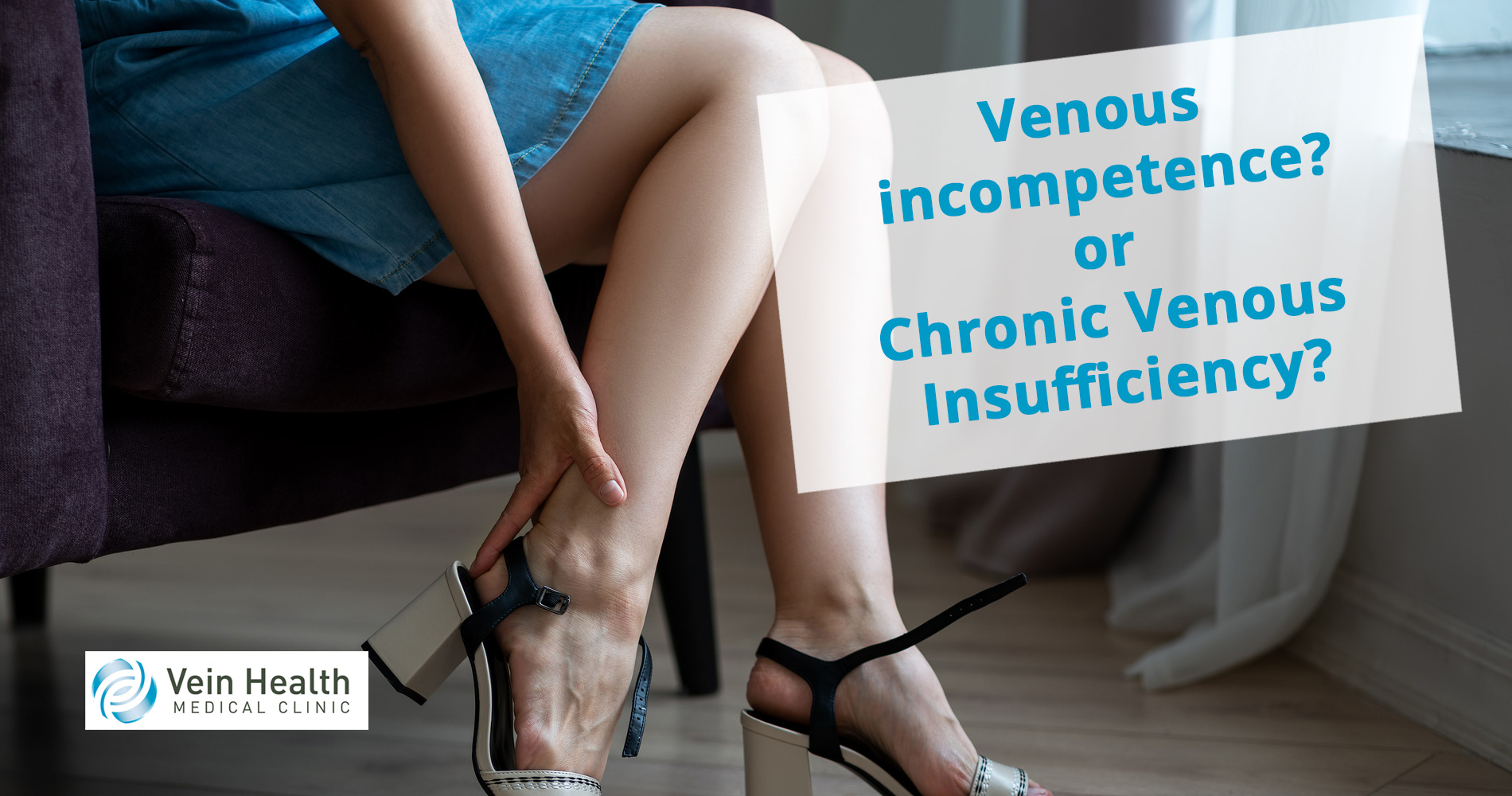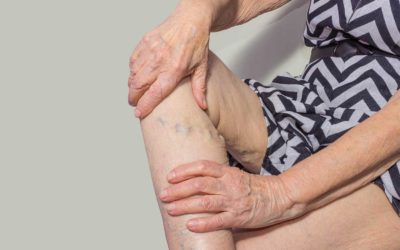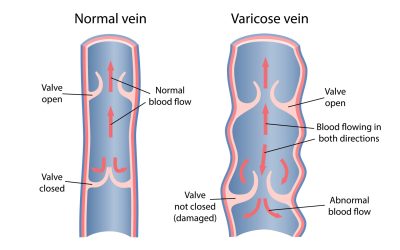Understanding the nuances between venous incompetence and chronic venous insufficiency is vital in addressing vein health effectively. Both conditions are related and often interconnected, but they highlight different aspects of vein disorders.
Let’s look at the differences:
Venous Incompetence
Venous incompetence, also known as venous reflux, is a condition where the valves in the veins that help regulate blood flow toward the heart fail to function properly. This malfunction along with an impairment in the normal integrity of the vein wall and how it contracts and relaxes, allows blood to flow backward and pool in the veins, primarily affecting the legs. Venous incompetence is essentially an objective term that Phlebologists use to describe abnormal flow within the superficial (and deep) veins.
Chronic Venous Insufficiency (CVI)
Chronic venous insufficiency is a broader term that encompasses the long-term consequences and various manifestations of venous incompetence in the lower legs including symptoms like swelling, heaviness and aching in the lower legs and signs such as skin changes, and in severe cases, leg ulcers. It represents the chronic, progressive nature of conditions resulting from venous incompetence, including varicose veins, oedema, and skin changes.
Key Differences:
Scope: Venous incompetence refers specifically to the failure of vein valves, leading to reflux. Chronic venous insufficiency describes a wider range of symptoms and complications arising from prolonged venous dysfunction.
Progression: Venous incompetence can be seen as an early or underlying cause of CVI. Over time, untreated venous incompetence can lead to chronic venous insufficiency, with more severe symptoms and complications.
Symptoms and Complications: While venous incompetence might initially present with symptoms like varicose veins or mild swelling, CVI encompasses a broader spectrum of severe symptoms, including skin changes, venous ulcers, and significant swelling.
Treatment and Management:
Managing both conditions involves a combination of lifestyle changes and medical procedures.
Treatment options may include:
- Compression therapy to improve vein circulation.
- Ultrasound Guided Sclerotherapy for subcutaneous (found within body fat) varicose veins.
- Endovenous Laser Ablation/Radiofrequency Ablation or “vein glue” for closing off incompetent truncal veins (large veins such as the Saphenous Veins).
The team at Vein Health Clinic, understands the complexities of vein disease and offer personalised treatment plans tailored to each patient’s unique condition. Our goal is to alleviate symptoms, improve vein function, and enhance overall well-being.
If you’re experiencing symptoms related to venous incompetence or chronic venous insufficiency, we’re here to help with expert care and the latest treatment options.
Key Takeaways:
- Venous incompetence specifically refers to the malfunction of vein valves causing blood to flow backward, while chronic venous insufficiency encompasses a range of symptoms that result from long-term venous dysfunction/incompetence.
- Initial symptoms of venous incompetence, such as varicose veins and mild swelling, can progress into more severe outcomes of chronic venous insufficiency, including significant swelling, skin changes, and venous ulcers, if left untreated.
- Treatment for both conditions may include lifestyle modifications, compression therapy, and minimally invasive procedures. Early intervention can prevent progression and improve quality of life.
- Consulting with vein experts like those at Vein Health Clinic ensures accurate diagnosis and personalised treatment plans. Our commitment to patient care and expertise in the latest vein treatment technologies can help you navigate your vein health journey with confidence.






